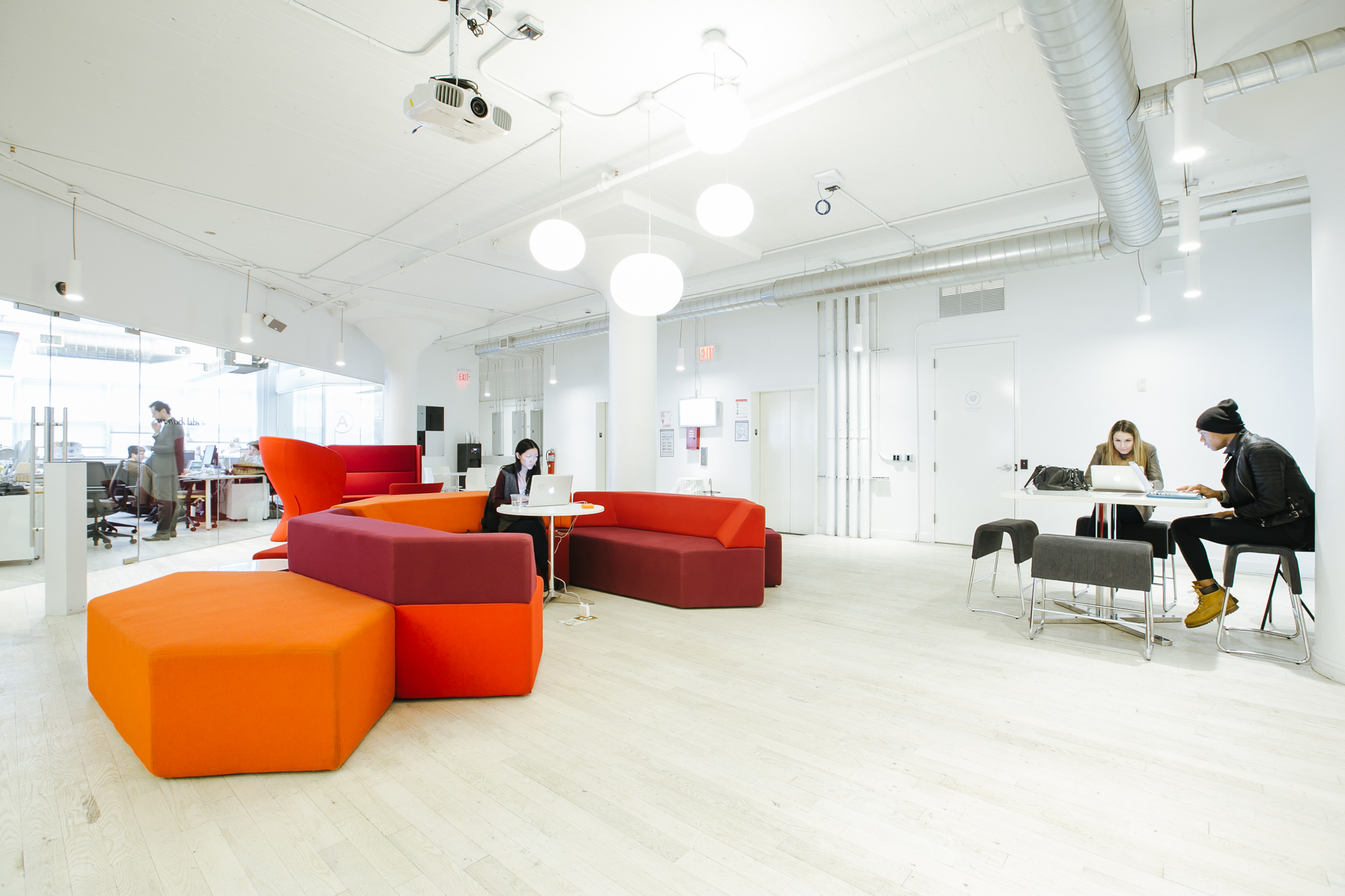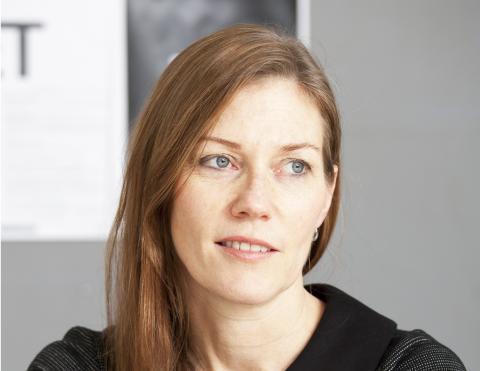
Late last year, the quick actions of three American servicemen stopped a terrorist attack on a train traveling from Paris to Amsterdam. Experts say the reason they were able to react while others sat stunned and nonreactive was due to something called “situational awareness.” When you or I hear the sound of gunfire, we’re confused, it takes time for our brain to process what the sound is, and we lose time, but trained military personnel are programmed to immediately and appropriately react.
While it may seem a stretch, adapting to new work environments requires a similar type of awareness for individuals and organisations to successfully conceive and accept new ways of working. Over the past decade, workplace experts have understood the impact of mindset, as well as the incorporation and integration of new technology, in creating successful workspaces; this workplace ecology or comprehensive approach is all the more critical as new types of work environments seek to redefine what it means to work.
The notion of workplace has evolved from being a desk we sit in to incorporate the floor that desk is on, and the entire buildings and precinct it belongs to. We continue to expand the concepts of what workplace is by exploring the digital environment along with the physical; we are also beginning to really challenge the status-quo approach to procuring space through the emergence of Co-working spaces. The global rise of Co-working spaces could arguably be one of the most significant changes to workplace that we have seen in the last half-century.
Co-working spaces are shared work environments generally located in prime CBD buildings. The main difference between a Co-working centre and the traditional hired or temporary office space provided by companies like Regus is the acknowledgement that work today is less about completing a series of tasks and more about connecting; collaborating; and from a personal standpoint, feeling part of a community that inspires and delights.
"Work today is less about completing a series of tasks
and more about connecting; collaborating;
and from a personal standpoint, feeling
part of a community that inspires and delights."
The typical Co-working venue provides a worker with a place to set a computer, coffee cup, and their backside, and also offers the service of savvy centre managers to facilitate professional introductions when a specific synergy or skill set might be beneficial, for instance pairing an accountant with a web designer. Centre managers in Co-Working environments organise seminars and learning opportunities to educate their constituents, creating a state of constant stimulation for those who work in them.
The advantages to small or start-up organisations are obvious. Following the popular shared-economy trend seen in companies like Zipcars, Co-working cultivates an immediate network to deliver and receive services. For workers whose alternative is to work from home, Co-working satisfies the human need to be a part of a professional and personal community. Anyone who’s attempted bouncing ideas off the family pet can appreciate this concept.
The big “ah-ha” that’s emerged from Co-working is that it’s proved to be just as attractive to small operations as to large established companies who see Co-working as a means to dial up innovation by expanding the circle of professionals people can liaise with to inspire and provoke. For organisations that have merged—or acquired new business to expand and complement a skill set but find they are suddenly dealing with cultural opposites, e.g., big banks or accounting companies with newly acquired digital teams—Co-working is a very attractive solution.
"The big 'ah-ha' that’s emerged from Co-working is that
it’s proved to be just as attractive to small
operations as to large established
companies who see Co-working as a means
to dial up innovation by expanding
the circle of professionals people can liaise with
to inspire and provoke."
Given the benefits of Co-working and the flexibility it offers from a real estate perspective, one might question why every organisation hasn’t gone down this path. For that matter, we might question why there are still companies who insist on having offices and high partitions, who insist on presenteeism and forbid the use of the Internet at work. To understand why new concepts with such promise don’t always succeed, we need to explore the important impact of people in the workplace equation; in particular, note how awareness of one’s self, of the personal surroundings, and of the situation can impact acceptance.
To take advantage of new ways of working, such as Activity Based Working or Co-working environments, we must encourage people to build greater self-awareness by asking individuals to make an honest assessment of what they’re good at and areas where they’re not as proficient. This type of awareness is rarely seen in today’s corporate environment, where workers are busy masking flaws, blaming others or their physical environment for internal challenges they have, are unaware of, or don’t care to address.
Cultivating greater self-awareness by accurately and honestly assessing professional performance and contribution, and letting go of the façade many don of believing they’re really good at what they do, when in reality they’re following a template that delivers mediocre status-quo results, is a first step. Those with the guts and audacity to critically self-reflect may gain an understanding of how to control or correct the environment to better leverage their skills and the skills of others around them.
"Those with the guts and audacity to critically self-reflect
may gain an understanding of how to control or correct
the environment to better leverage their skills and
the skills of others around them."
Self-awareness is impacted by culture; therefore, it’s important to appreciate some may have a greater challenge in developing self-awareness than others. For instance, in the United States there is great weight placed on personal freedom and decision making; the typical American vehemently defends their right to choose, while their Asian counterparts have a cultural expectation of alignment. In Australia, the “tall poppy syndrome” discourages individuals from calling attention to their needs and expectations.
It will not be enough for an individual to make the effort to understand their unique workstyles and productivity triggers if there is nothing they can change in the environment to remedy the issues they discover. Challenging the status quo and exploring new notions of how environment might support uncovered issues will require greater accountability and environmental awareness. By thinking differently, individuals can take responsibility and contribute to an expanded set of workplace options to address how a problem might be solved. This is where real innovation will begin—the kind that has given birth to ideas like Co-working that critically analyse whether the way we currently do things is the only or best way they should be done.
Unfortunately, workplace design is one of the few areas where an individual, or company, frequently reverts to their own experiences over the counsel or advice of a professional. This can be very limiting because there’s a tendency to envision the future based on the existing and a propensity to approach new workplace design with preconceived notions based on what is known and familiar.
One obvious flaw is many offices are outdated, leaving occupants few experiences and examples to draw from—they don’t know what they don’t know. Additional problems arise from ignoring what is new: the changing needs and expectations of an emergent workforce, the impact of new technologies, and changing economic pressures. All are critical considerations.
Combining greater self-awareness with expanded environmental awareness will produce a larger number of choices for people to customise their work experience for greater effectiveness. Encouraging people, who are a key ingredient in the workplace ecology equation, empowers the individual to take responsibility for examining their own internal issues and creatively engage with the environment for support, effectively shifting responsibility.
Finally, it isn’t enough to for us to suggest workers become more self-aware and expand their environmental awareness; to take advantage of the rewards a physical environment can offer, they must have the ability to perform like the military personnel on the train; they must intuitively think and act quickly, and have the permission from their organisations to do so. ![]()
This article was first published by Woodform Architectural. The original version can be viewed here.

